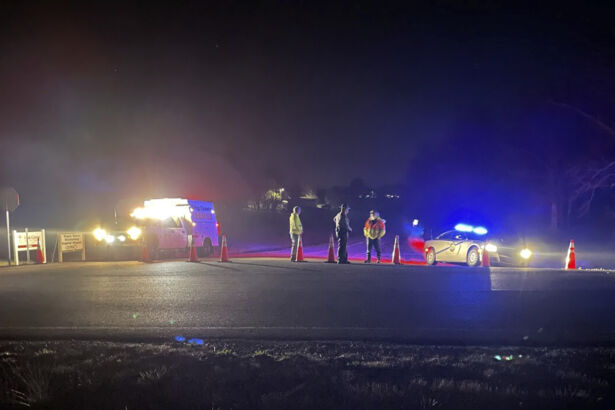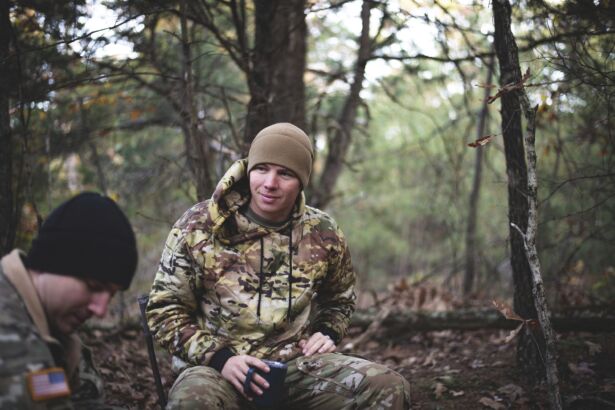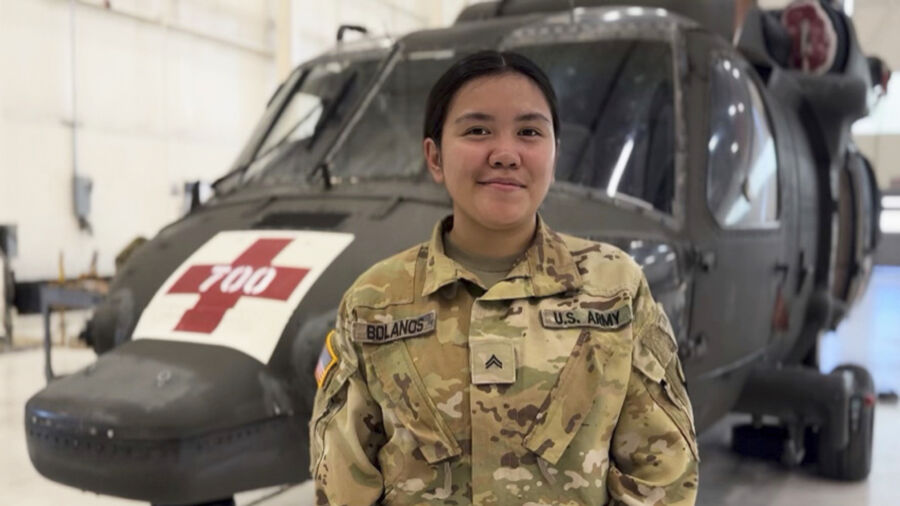LOUISVILLE, Ky.—The nine service members who died in a crash involving two U.S. Army Black Hawk helicopters ranged in age from 23 to 36 and were from seven states, the military said Friday, as it released the identities of the soldiers and an investigative team continued its probe of the accident.
A military news release said the service members came from Florida, Texas, Missouri, California, North Carolina, Alabama, and New Jersey.
“This is a time of great sadness for the 101st Airborne Division. The loss of these Soldiers will reverberate through our formations for years to come,” said Maj. Gen. JP McGee, commanding general of the 101st Airborne Division (Air Assault) and Fort Campbell.
Two HH-60 Black Hawk medical evacuation helicopters crashed near Fort Campbell on Wednesday night in southwest Kentucky during a training exercise, killing all nine soldiers aboard the two aircrafts. The crash occurred in Trigg County, Kentucky, about 30 miles northwest of the Army post that is home to the 101st Airborne Division.

A special military investigative team was on the scene Friday but rain and wind have slowed the early work, Army officials said.
The two Black Hawks were flying during a training exercise and the pilots were using night-vision goggles, Army officials said. The accident occurred during flying and not during the course of a medical evacuation drill, said Brig. Gen. John Lubas, the 101st Airborne deputy commander.
The helicopters carried flight data recorders, similar to the black boxes that investigators use to analyze crashes involving passengers planes. Officials are hoping the devices yield information about the cause.
The Army identified the soldiers as: Warrant Officer 1 Jeffery Barnes, 33, of Milton, Florida; Cpl. Emilie Marie Eve Bolanos, 23, of Austin, Texas; Chief Warrant Officer 2 Zachary Esparza, 36, of Jackson, Missouri; Sgt. Isaacjohn Gayo, 27, of Los Angeles, California.; Staff Sgt. Joshua C. Gore, 25, of Morehead City, North Carolina; Warrant Officer 1 Aaron Healy, 32, of Cape Coral, Florida; Staff Sgt. Taylor Mitchell, 30, of Mountain Brook, Alabama; Chief Warrant Officer 2 Rusten Smith, 32, of Rolla, Missouri; and Sgt. David Solinas Jr., 23, of Oradell, New Jersey.

The four soldiers piloting the two Black Hawks were Esparza, Smith, Barnes, and Healy, according to the Army.
Dave Busby, who taught Smith in middle school, was among several of Smith’s childhood teachers and classmates who posted tributes on Facebook.
“What a great kid. What a tragedy,” Busby said by phone from his home in St. James, Missouri, the small town where Smith grew up. “I’ll be honest I wept—what a shame.”
Even as a teen, Smith was ambitious, forward-looking and perceptive, Busby said: “You could tell he was going places.”
Solinas’ dedication to being a flight medic showed his character, his brother, Aidan Solinas, said in a statement.
“We are a faithful family and we are proud David was training to rescue soldiers on the battlefield,” he said. “Being a flight medic is one of the most difficult jobs that you can do, and illustrates that David was a man of compassion and faith.
Gore’s father, Tim Gore, told the Goldsboro News-Argus that his son leaves behind a wife who’s pregnant. Gore, a pastor in Wayne County, said that his son, who was known to family as Caleb, was an infant when the family moved to North Carolina and remained in the state until he joined the Army after graduating high school.
“His passion was search and rescue, and if you were wounded on the battlefield, Caleb coming out of that helicopter would be the most beautiful thing you would ever see,” Gore told the newspaper. “He was kind, compassionate, and a gentle giant because he was built like a tank.”
Kentucky Gov. Andy Beshear on Friday ordered flags at state buildings lowered to half-staff from sunrise on Saturday until sunset Monday in honor of the soldiers.
Over the last 10 years, the Army’s Black Hawk helicopter has been involved in 40 so-called Class A mishaps, which involve either a fatality or more than $2.5 million in damage. Forty-four personnel died in those cases.
Wednesday’s crash was the deadliest training incident for the Army since March 2015, when a Black Hawk helicopter crashed off the Florida coast in dense fog, said Jimmie Cummings, spokesperson for the Army Combat Readiness Center at Fort Rucker. Four soldiers from the Louisiana Army National Guard and seven Marine special operations forces were killed.
Cummings said the most deadly non-combat Black Hawk crash was in 1988 and also involved Fort Campbell aircraft. The crash killed 17 troops when two helicopters collided in mid-air. The most deadly Army aircraft training incident was a Chinook crash in Germany in 1982, that killed 46 U.S. and international forces. The second was a C-23 Sherpa fixed wing aircraft crash in Georgia in 2001 that killed 21 Army and Air Guard personnel.
Fort Campbell also had a multi-aircraft crash in 1996, when two Blackhawks clipped propellers, killing five soldiers. The last deadly aviation accident at Fort Campbell occurred in 2018, when an Apache helicopter crashed during training, killing two soldiers on board.
The Black Hawk helicopter is a critical workhorse for the U.S. Army and is used in security, transport, medical evacuations, search and rescue, and other missions. The helicopters are known to many people from the 2001 movie “Black Hawk Down,” which is about a 1993 battle in Somalia.
By Dylan Lovan


